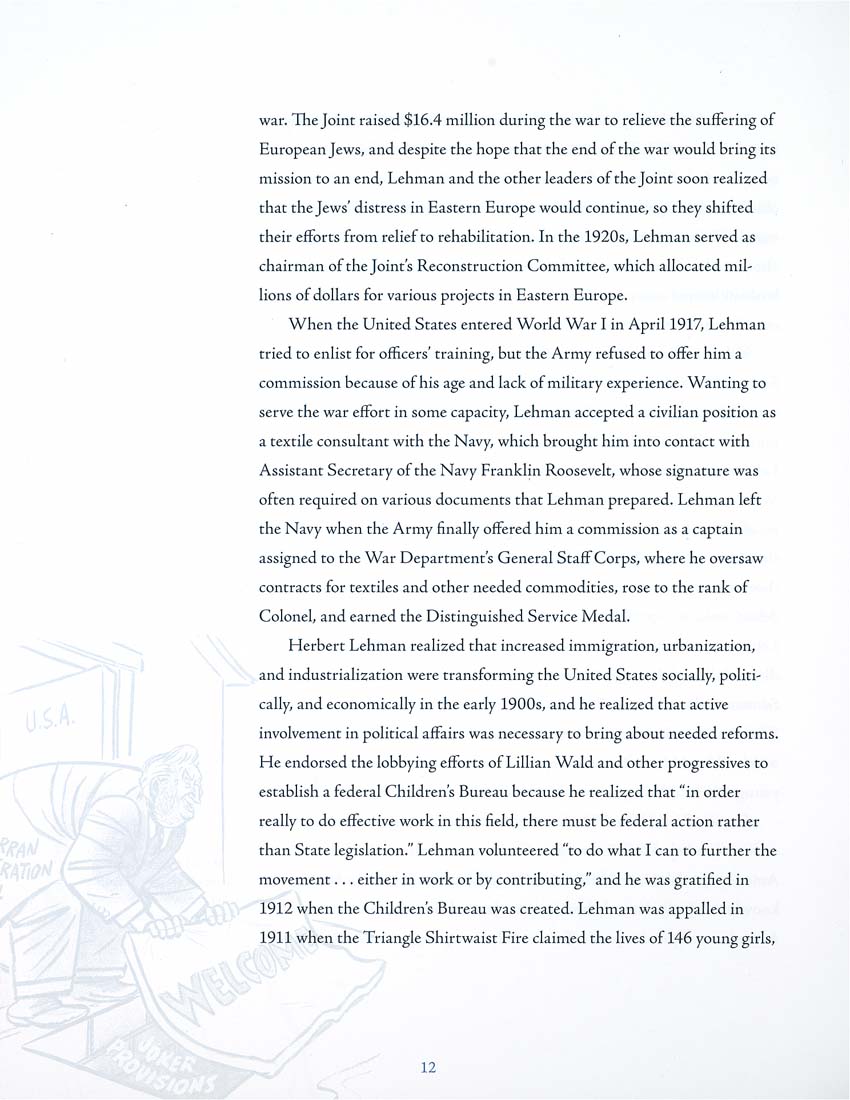war. The Joint raised $16.4 million during the war to relieve the suffering of
European Jews, and despite the hope that the end of the war would bring its
mission to an end, Lehman and the other leaders of the Joint soon realised
that the Jews' distress in Eastern Europe would continue, so they shifted
their efforts from relief to rehabilitation. In the 1920s, Lehman served as
chairman of the Joint's Reconstruction Committee, which allocated mil¬
lions of dollars for various projects in Eastern Europe-
When the United States entered World War I in April 1917, Lehman
tried to enlist for officers' training, but the Army refused to offer him a
commission because of his age and lack of military experience. Wanting to
serve the war effort in some capacity, Lehman accepted a civilian position as
a textile consultant with the Navy, which brought him into contact with
Assistant Secretary of the Navy Franklin Roosevelt, whose signature was
often required on various documents that Lehman prepared, Lehman left
the Navy when the Army finally offered him a commission as a captain
assigned to the War Department's General Staff Corps, where he oversaw
contracts for textiles and other needed commodities, rose to the rank of
Colonel, and earned the Distinguished Service Medal.
Herbert Lehman realized that increased immigration, urbanization,
and industrialization were transforming the United States socially, politi¬
cally, and economically in the early 1900s, and he realized that active
involvement in political affairs was necessary to bring about needed reforms.
He endorsed the lobbying efforts of Lillian Wald and other progressives to
establish a federal Children's Bureau because he realized that "in order
really to do effective work in this field, there must be federal action rather
than State legislation." Lehman volunteered "to do what I can to further the
movement,., either in work or by contributing," and he was gratified in
1912 when the Children's Bureau was created. Lehman was appalled in
1911 when the Triangle Shirtwaist Fire claimed the lives of 146 young girls,
^.<?'
12
|








